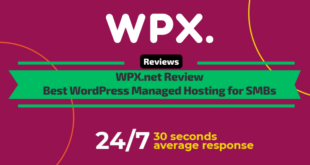Confused between WooCommerce and Shopify?
Wondering which one is better to create your online store with?
If this sounds like you and you’re planning to start an online store but not sure which platform to get started with, we’ve got you covered here.
WooCommerce vs. Shopify is a face-off between two popular eCommerce gladiators, claiming to be the king of this eCommerce realm.
Let’s begin this showdown without any further delay.
Table of Contents
- 1 Overview: WooCommerce vs. Shopify
- 2 WooCommerce vs. Shopify Pros and Cons
- 3 Cost: WooCommerce vs. Shopify
- 4 Ease of Use: WooCommerce vs. Shopify
- 5 Payment Gateways: WooCommerce vs. Shopify
- 6 Integrations: WooCommerce vs. Shopify
- 7 Support Options: WooCommerce vs. Shopify
- 8 Security: WooCommerce vs. Shopify
- 9 Which One is Better?
Overview: WooCommerce vs. Shopify
Shopify: This eCommerce store building platform offers you an all-one package.
It enables you to create and publish your online shop entirely without taking the hassles of going into technicalities.
WooCommerce: It’s a FREE, open-source eCommerce plugin that works with WordPress websites. It allows you to leverage the most useful content management system (CMS) to run your online shop.
WooCommerce vs. Shopify Pros and Cons
As we move on to compare WooCommerce vs. Shopify, it becomes apparent that both of the platforms have strengths and weaknesses. Let us examine which can be attributed to each online store platform.
Shopify Advantages and Disadvantages
Shopify Advantages
- With Shopify, you will be clear about how much you will pay eventually, and its prices are fair.
- Shopify takes care of everything about your store, from web hosting to its security; it’s got you covered.
- Creating a store with Shopify doesn’t have anything to do with sluggish loading. Your online store will load in no time.
- You will be spellbound with the ease of dropshipping with Shopify.
- Their customer support is the best in the business.
Shopify Disadvantages
- You may face a lack of control over the website, as Shopify takes all control.
- You will have little to no customization options with Shopify.
- For customizations or enhanced functionality, you have to hire a developer who will cost you a fortune.
- As for payment plans, you will have one monthly payment option that will only get higher.
Woocommerce Advantages and Disadvantages
WooCommerce Advantages
- WooCommerce offers thoroughgoing customization and gives you total control of your online store.
- WordPress owns a vast community online. So, seeking help is so easy.
- The themes and plugins are unlimited since just about anybody can make and sell them online. This is the advantage of an open-source platform.
- WooCommerce has little to no complication when it comes to configuring it on WordPress.
- Most of the WooCommerce plugin comes free.
- You can easily post external products and with an affiliate marketing theme monetize your shop.
WooCommerce Disadvantages
- WordPress has a little bit of a learning curve.
- WooCommerce can be more expensive eventually with all those plugins, hosting, and themes.
- You may find that WooCommerce ends up being more expensive due to plugins, themes, and hosting.
- You’ll have to manage everything from hosting to security and maintenance to backups.
Cost: WooCommerce vs. Shopify
When planning to create an online shop, pricing comes as the most crucial factor to consider for an eCommerce store owner.
Shopify keeps it super duper easy and upfront when it comes to its pricing.
Check it below:
- Basic: $29 per month
- Medium: $79 per month
- Advanced: $ 299 per month
Each of these packages includes an SSL certificate, domain, and web hosting service.
Whereas WooCommerce itself comes free, but you will need to take care of the cost of domain ($14.99), SSL certificate ($69.99), and a WordPress hosting account ( around $7.99 / month).
Ease of Use: WooCommerce vs. Shopify
With Shopify, you don’t need to manage, install, or update software. Worrying about security, backups, performance, and capability is not a thing with Shopify.
Unlike Shopify, WooCommerce isn’t a hosted platform. This means you are responsible for installing, managing, and updating WooCommerce software. Also, the burden of website security, performance, and capability are on your shoulder.
Payment Gateways: WooCommerce vs. Shopify
Shopify offers plenty of payment modes, including its own, Shopify Payment (powered by Stripes), and other third-party gateways such as PayPal, Authorize.net, AmazonPayment, First Data, etc.
On the other hand, WooCommerce supports only PayPal and Stripes payment gateways by default. However, you can use different methods, too, through add-ons.
Integrations: WooCommerce vs. Shopify
Shopify owns a powerful API and app store with hundreds of featured apps, catering to all your online store needs. This includes apps for SEO, discounts, product reviews, countdowns, and more.
Being an open-source WordPress plugin, WooCommerce lets you access up to 55,000 free WordPress plugins and numerous paid plugins. Here are two reputable Woocommerce plugin sellers: Woocommerce.com and YITH.
Support Options: WooCommerce vs. Shopify
Shopify renders 24/7 support via phone, live chat, email, and Twitter. Also, you can find useful how-to guides, video tutorials, and help forums by Shopify.
When it comes to WooCommerce, there is no unified help desk to cater to all your issues. Since it’s a self-hosted platform, your web hosting service is responsible for giving you support for server-related issues. Similarly, for theme and extensions issues, you will have to reach out to the developers for assistance.
Security: WooCommerce vs. Shopify
Security is a considerable concern when doing online transactions and through your own online store. Significant issues can surface if your website is compromised. You will have a hard time retaining your customers if their data gets compromised.
Technically, WooCommerce doesn’t offer any security measures that are included with the plugins. Since it gets integrated on WordPress, a big chunk of security falls in your hands.
For example, it’s you who would have to deal with owning an SSL certificate and make sure that your hosting service provider has a secure server. Also, you will need to configure website security plugins, two-factor authentication, and some other stuff to ensure your website’s protection.
To make sure you keep your Woocommerce website safe and sound, I recommend hiring a WordPress maintenance and support service. I’ve created a list with the best ones.

On the other hand, Shopify takes control of all the security measures for your website. Its services include completely taking care of your website security. This hassle-free service will ease you when it comes to thinking about owning an SSL certificate.
However, all you should do is set a strong password; this is a small part of security that it gives in your hands.
Moreover, Shopify is PCI compliant right out of the box, while WooCommerce can be that way eventually only if you use the right tools. You can also add security badges on both.
Which One is Better?
That totally depends upon the user case, and each eCommerce platform has its own pros and cons. Since Shopify is easy to use and has a plethora of features and options.
However, it all boils down to your specific needs. If you don’t want to take the technical hassle, Shopify is for you. And those who are technically skilled can give WooCommerce a shot.
Still, you can’t decide which eCommerce you should be opting for this year! Don’t worry; you can read the detailed Guide Shopify vs. WooCommerce here.
Think to shout Magento? Check our Woocommerce vs. Magento comparison.
 Monetize.info We Help You Monetize Better Your Digital Assets! 💰👍
Monetize.info We Help You Monetize Better Your Digital Assets! 💰👍








